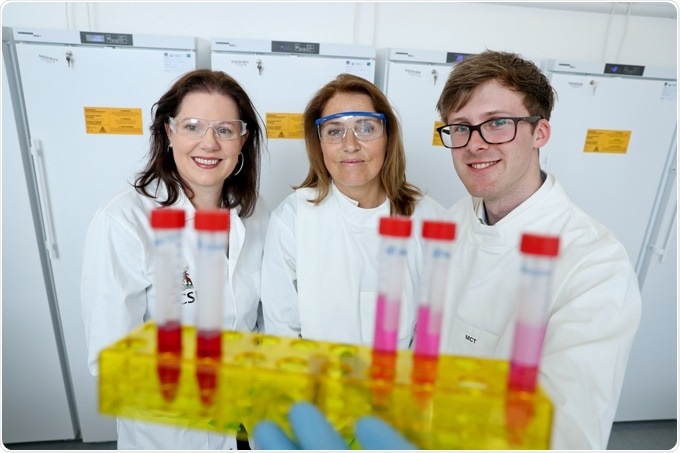May 26 2017
Newborn infant girls have better outcomes than their male counterparts due to an innate genetic advantage in responding to acute infections, according to new research from RCSI (Royal College of Surgeons in Ireland). The research is published in the current edition of Pediatric Research.

While females have a recognised survival advantage throughout the entire human lifecycle, this is particularly evident during the newborn period. Newborn boys have higher rates of infection and sepsis compared with baby girls of the same gestational age and have poorer survival.
The explanation is to be found in our chromosomes, in particular the difference in chromosomal make-up between females, who carry two copies of the X chromosome (XX), and males who carry one X and one Y chromosome (XY). The X chromosome contains more of the genes involved in immunity than does the Y chromosome. Females can have a higher expression of these immune genes than males and this gives them an advantage in dealing with acute infections, and could also be implicated in gender differences in certain diseases.
This research measured the presence of a factor called IRAK1 (interleukin-1 receptor-associated kinase 1), which contributes to immunity against infection, in the umbilical cord blood of newborn babies. Higher IRAK1 gene and protein expression was detected in the female cord blood and the authors believe this may explain in part the differences in inflammatory outcomes in infants.
According to the senior author of the research paper Professor Catherine Greene, Associate Professor of Clinical Microbiology at RCSI:
The phenomenon of female neonates being hardier than their male counterparts is well recognised. This research shows this is due to a fundamental genetic advantage which may also contribute to more effective responses to infection and disease throughout the human lifecycle.
David O’Driscoll, who carried out the experimental work in RCSI and is first author of the paper, said:
Our findings in full-term newborn babies suggest that a similar phenomenon could be occurring in preterm infants where gender differences can be even more marked.
This research arose from a collaboration between the RCSI researchers and Professor Eleanor Molloy, Head of Department of Paediatrics in Trinity College Dublin, neonatologist and co-senior author of the study who works with the neonatology departments of the National Maternity Hospital, the Coombe and Crumlin Children’s Hospital; and the Paediatrics Academic Centre at Tallaght Hospital.